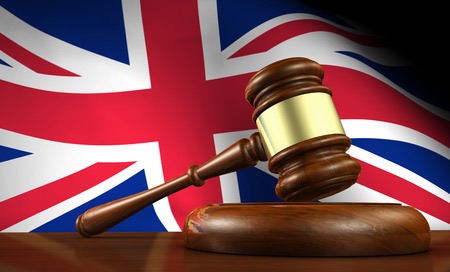“This ‘ping-pong’ between courtrooms across the globe could in theory go on and on. An anti-suit injunction can trigger an anti-anti suit injunction and so on. This is not particularly conducive to enhancing legal certainty and opens up a Pandora’s box of novel issues to come to grips with.”
 Standards such as WiFi, GSM, 2G, 3G or 4G/LTE have been central to connecting the world. During the Covid-19 crisis, it was thanks to the technologies these standards enable that the global economy did not totally collapse. As we “zoomed” our way through self-isolation, the UK Supreme Court issued a landmark judgment, as reported by IPWatchdog.
Standards such as WiFi, GSM, 2G, 3G or 4G/LTE have been central to connecting the world. During the Covid-19 crisis, it was thanks to the technologies these standards enable that the global economy did not totally collapse. As we “zoomed” our way through self-isolation, the UK Supreme Court issued a landmark judgment, as reported by IPWatchdog.
The decision addresses the cross-border enforcement of standard essential patents. Standard essential patents (SEPs) need to be addressed on FRAND (fair, reasonable and non-discriminatory) terms. FRAND aims at addressing anti-competitive conduct that can stem from matching patent law with standardization. Because these standards enable interconnectivity, they are of great importance.
Not all standard setting organizations have an IPR policy. But ETSI, the European Technology Standards Institute, does, and the UK Supreme Court, like lower courts before it, paid a lot of attention to the interpretation of this policy. The reason for doing so was that the patents under dispute read on standards, which are under the auspices of ETSI. This was probably not an easy task, as ETSI’s IPR policy is regulated under French and not English law.
Huawei and ZTE are both multinational technology companies. Both companies sell products, but also hold important SEP portfolios. Conversant and Unwired Planet are patent licensing companies. Their business consists of obtaining licensing revenues from third parties. The patents subject to the dispute in the Conversant case are from Nokia. Nokia is a competitor to Huawei and ZTE.
The Supreme Court came to the conclusion that Great Britain is entitled to issue a judgment on global FRAND licensing rates and that the United Kingdom is the right forum to do this. In doing so, the judgment referred to the ETSI IPR policy, its take on the forum non conveniens doctrine, and an inadequate response from Chinese counterparts. The case addressed many issues, of which I shall only discuss the matter of comity and its possible effects on anti-suit injunctions.
Comity and Anti-Suit Injunctions
The forum non-conveniens test the Supreme Court applied is a well-established test in the Anglo-Saxon world. The doctrine seeks to provide guidance as to which court has jurisdiction over a dispute. It is applied by the courts when determining whether to grant permission to serve out of the jurisdiction or dealing with a dispute as to jurisdiction. The doctrine is also relevant in relation to applications for restraint of foreign proceedings. Its application in this case probably enhances efficiency but may come at a cost. In particular, it may open up uncertainty as to how to resolve the judicial competency between courts of different countries.
Could this decision lead to a race to the courtroom? As a party to a case wants to avoid legal uncertainty, they may be rushing to file a lawsuit with the court they expect to act fastest and, ideally, also in their interest. If the other party to that case were to do the same, but makes use of another country’s court, would it then be clear which court would have precedence?
Would it be the court that is quickest in offering a reply? How will different courts coordinate among each other? Or, if two courts both hear the same case, which judgment will have precedence?
The decision risks triggering anti-suit injunctions. A court can order either party to a case to do or refrain from doing something outside its jurisdiction. Anti-suit injunctions are generally permitted in common-law countries to prevent a litigant from proceeding with “vexatious” or “oppressive” litigation in a foreign country.
However, they have also now been used in Germany in a FRAND dispute involving Nokia. A court that issues an anti-suit injunction intervenes in a foreign court’s action.
This “ping-pong” between courtrooms across the globe could in theory go on and on. An anti-suit injunction can trigger an anti-anti suit injunction and so on. This is not particularly conducive to enhancing legal certainty and opens up a Pandora’s box of novel issues to come to grips with.
As the UK Courts have taken a position on extraterritorial proceedings, it would be important to check if there may be a need for adjustment from a public policy perspective. Could this turn in any way against British interests? Will other countries also consider similar measures? Could it trigger anti-suit injunctions against British firms?
Takeaway
I expect that the decision bears the potential to turn London into a center for international litigation, which is good for the local litigation industry, but may erode the interests of the UK’s major trading partners. Would the United States accept losing its litigation markets to the UK?
The effects on British small and medium sized enterprises (SMEs) should also be further investigated. As the UK may be attracting more litigation, SMEs may be drawn into disputes previously not known to them.
Generally, SMEs have difficulties when it comes to IP enforcement. Costs can prohibit access to the judicial system. Lack of IP awareness also does not help when it comes to building a strong IP position.
As the UK is preparing its departure from the European Union, it is facing a new era. Against this background, the UK needs to assure it takes all measures possible to guarantee success locally and internationally. It would be advisable to study the matter further from a public policy perspective.
Image Source: Deposit Photos
Author: NiroDesign
Image ID: 83044878

![[IPWatchdog Logo]](https://ipwatchdog.com/wp-content/themes/IPWatchdog%20-%202023/assets/images/temp/logo-small@2x.png)

![[Advertisement]](https://ipwatchdog.com/wp-content/uploads/2024/04/UnitedLex-May-2-2024-sidebar-700x500-1.jpg)
![[Advertisement]](https://ipwatchdog.com/wp-content/uploads/2024/04/Artificial-Intelligence-2024-REPLAY-sidebar-700x500-corrected.jpg)
![[Advertisement]](https://ipwatchdog.com/wp-content/uploads/2024/04/Patent-Litigation-Masters-2024-sidebar-700x500-1.jpg)

![[Advertisement]](https://ipwatchdog.com/wp-content/uploads/2021/12/WEBINAR-336-x-280-px.png)
![[Advertisement]](https://ipwatchdog.com/wp-content/uploads/2021/12/2021-Patent-Practice-on-Demand-recorded-Feb-2021-336-x-280.jpg)
![[Advertisement]](https://ipwatchdog.com/wp-content/uploads/2021/12/Ad-4-The-Invent-Patent-System™.png)






Join the Discussion
No comments yet.